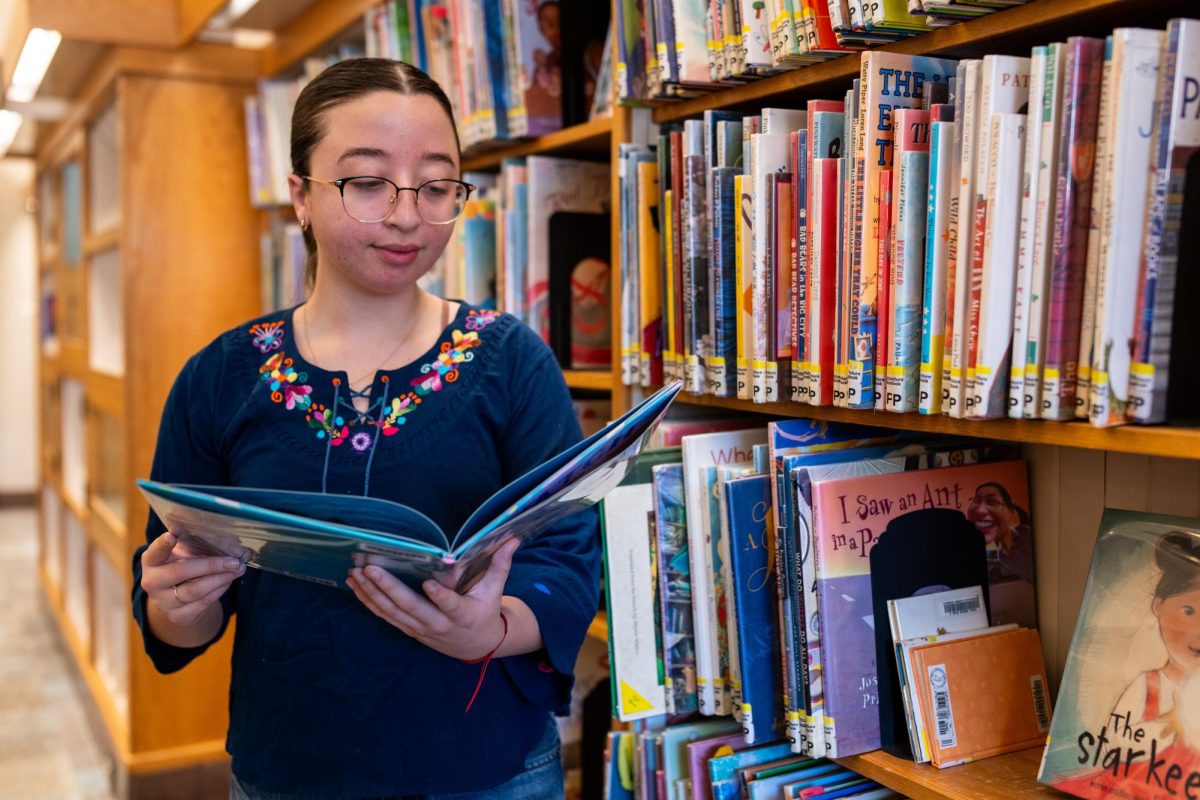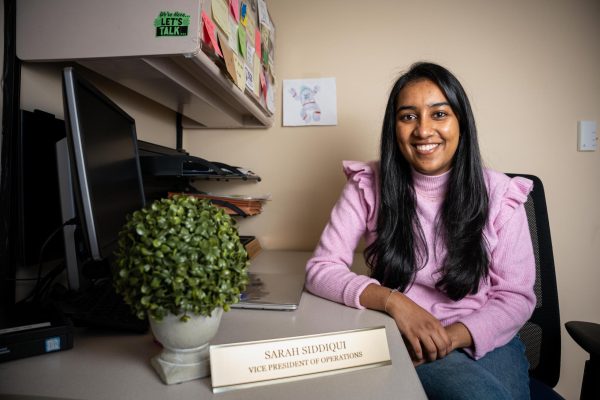New textbook options in Book Center
August 31, 2010
Despite spending almost two months in China this summer, SGB member Molly Stieber continued to… Despite spending almost two months in China this summer, SGB member Molly Stieber continued to push University administration to sponsor new options for students unable and unwilling to purchase full-priced textbooks.
She made frequent Skype calls to administrators and fellow board members, meanwhile juggling the 11-hour time difference and a handful of academic courses.
“Our vision is to totally redo the entire Book Center,” Steiber said shortly before returning to campus. “We want to get more in line with what students really want and need from their University bookstore.”
Her work came to fruition last week when Pitt’s Book Center rolled out two new programs for acquiring costly course materials. So far, the programs have not seen an influx of student participation, Book Center staff said, but they hope increased awareness will boost participation throughout the coming semesters.
These new changes include rental services and “e-book” options for some courses.
The e-books, available for about 140 titles, are provided by an online publishing company called CafeScribe. Any time that there is an e-book available for a particular text, students will be able to grab an “e-book card” assigned to that text and take it to the registers for processing.
There, Book Center staff will print an access code on the student’s receipt that will grant access to the book through the CafeScribe website.
Book Center manager Debra Fyock said that when students purchase an e-book, they will be able to view files of the print pages on one computer. Most are between 50 and 60 percent off the price of a physical text because of reduced printing and shipping costs.
Price listings for a number of titles available in both print and electronic forms confirmed Fyock’s savings figures. “Brief Principles of Macroeconomics,” by N. Gregory Mankiw, for example, costs $157.67 in print and $80.99 online — a savings of 49 percent.
Fyock’s colleague, fellow manager John Burns, said few students had purchased e-books during the first week of sales, despite the potential savings.
“We haven’t sold many at all so far,” Burns said. “We’ve had some students asking questions, but they need to get more comfortable with the idea of an electronic book before we’ll see the numbers go up.”
Burns said the Book Center has not calculated exactly how many e-books had been sold or textbooks rented since the programs launched Aug. 23.
Throughout the afternoon on Tuesday, students continued to stream in and out of the Book Center, virtually all of them purchasing physical textbooks. One Pitt freshman took a moment to discuss the introduction of e-books during the midafternoon shuffle.
“I’m a paper kind of guy,” Pierce Cohen said while browsing the economics section in the Book Center, where about five e-book tag holders hung. “Technology isn’t always a safe bet when it comes to education. I got in early and bought used. That seems like the best option.”
Another student, sophomore Chris Long, seemed more open to the idea of e-books.
“I didn’t hear anything about the program before I bought my books,” Long said. “I think I would try it out for one class first, maybe next semester. I’m not always by a computer when I want to read, but I think I could adjust to save that much.”
Finding the best option is a tricky business, Fyock said, and students should consider the pros and cons of e-books carefully prior to purchase. For example, once they have been accessed, they are not returnable, and they cannot be sold back at the end of the semester.
“Students should be cautious, go to class first, make sure they are not going to drop a class before accessing the code and downloading the book,” she said.
Fyock said the center’s first wave of e-books includes many of the courses with the most expensive textbooks, such as biology, chemistry and physics courses.
Textbooks in these classes can range anywhere from $150 to more than $200, Fyock said, and so the potential for savings is great.
The main objective of the Book Center has changed to providing as many options as possible, Fyock said.
“If a student wants a new book because he intends to keep it as a resource, we have it. If someone wants guaranteed buyback, or if green issues are an important concern, we have resources for them, as well,” she said.
The other new option provided by the Book Center this year is textbook renting. Under the Book Center’s renting service, books are shipped free of charge from various book vendors and outlets to students through UPS, along with a return postage for when the rental period is over.
Students must use a credit or debit card to rent books and are responsible for keeping them in “new or like-new” condition. Damaged books will be kept by the Book Center, and the renter will be charged a “buyout price equal to the retail purchase price of the book on the day it was rented,” according to the Book Center website.
A textbook rental drop-off service at the Book Center is in the works, Stieber said, but has not been finalized at this point.
“This is all going to start out slowly,” Stieber said. “If people go for the new options, then they will start to expand exponentially.”







